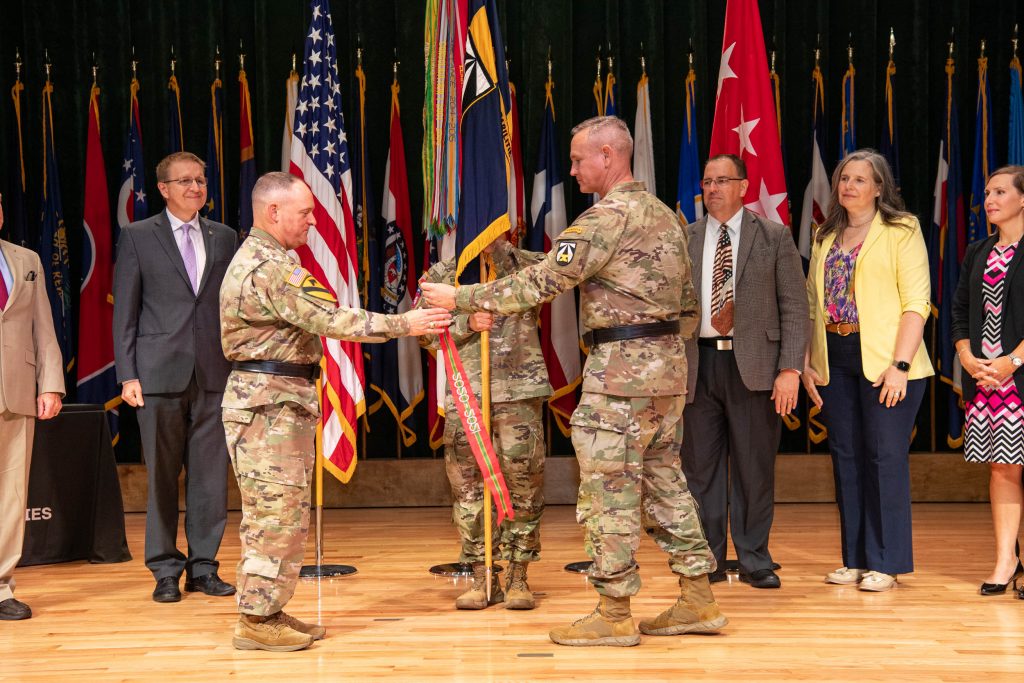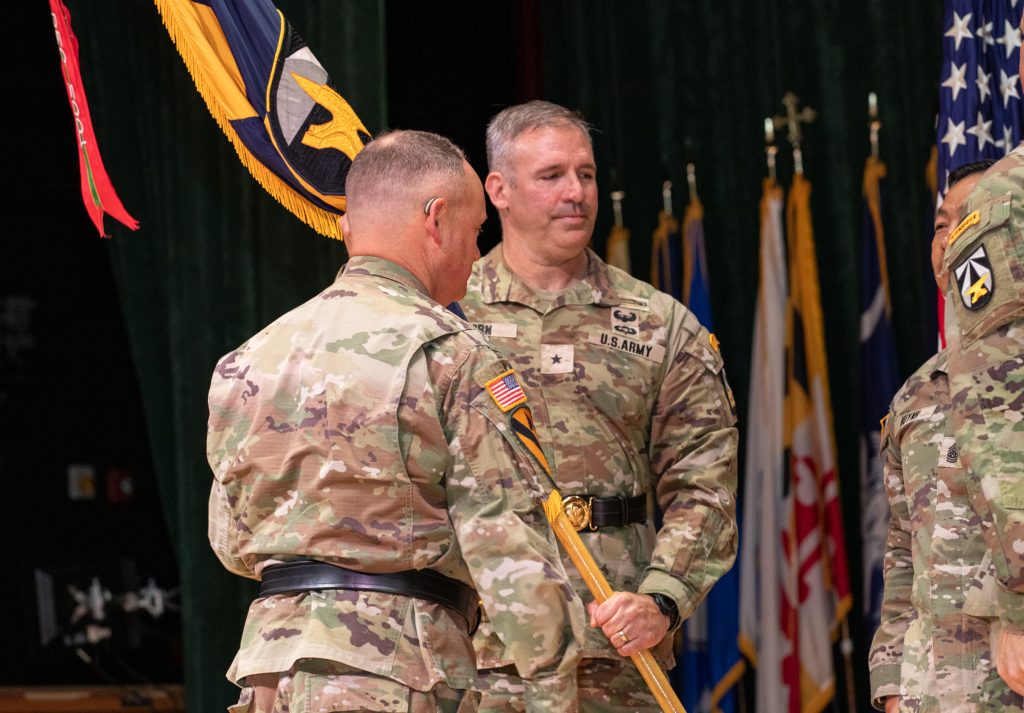DEVCOM Command Sgt. Maj. Barker inducted as Distinguished Member of Army Rangers
July 28, 2022By Argie Sarantinos, DEVCOM Headquarters
FORT BENNING, Ga. – DEVCOM’s senior Noncommissioned Officer, Command Sgt. Maj. Bryan D. Barker, was recently inducted as a Distinguished Member of the Army Rangers. Formally known as the 75th Ranger Regiment, the Army Rangers are the service’s premier light infantry and special operations force within the U.S. Army Special Operations Command.
“It is an honor to work side-by-side with Command Sgt. Maj. Barker, who exemplifies the qualities of a good Soldier. This is a well-deserved award, and I commend him on his induction into this elite group,” said Maj. Gen. Miles Brown, DEVCOM commanding general.
Barker was named a Distinguished Member of the 75th Ranger Regiment during a July 19, 2022, ceremony at Fort Benning, Georgia. Soldiers are named as distinguished members of the 75th Ranger Regiment for their outstanding accomplishments while assigned to the unit. The 75th Ranger Regiment consists of five battalions, located at Fort Benning, Georgia; Hunter Army Airfield, Georgia; and Joint Base Lewis-McChord, Washington.
Barker served with the 75th Ranger Regiment from 1996-2012, in the 2nd Ranger Battalion. He served in multiple positions ranging from rifleman to platoon sergeant to operations sergeant major. Officers and NCOs in the 75th Ranger Regiment are required to attend Ranger School, which is an intense 61-day combat leadership course. It has been called the “toughest combat course in the world,” and “the most physically and mentally demanding leadership school in the Army.”
“I am the product of leaders who came before me in the 75th Ranger Regiment who invested in my development and shaped me into the man and leader I am today. I was fortunate to have the opportunity to serve during pivotal times in the history of the Regiment, and I am honored and humbled to be inducted into the company of my heroes,” Barker said.
Barker assumed responsibility as the command sergeant major for the U.S. Army Combat Capabilities Development Command, or DEVCOM, on June 18, 2021. DEVCOM, which comprises eight reporting units and three regionally aligned international elements, is the Army’s largest technology developer. The command consists of 27,000 Soldiers, civilians and contractors who leverage cross-cutting technology to solve complex problems and rapidly deliver next-generation capabilities to Soldiers.
As the senior DEVCOM NCO, Barker oversees the NCOs who are located across the command. Many of these NCOs work with DEVCOM’s scientists, engineers, technicians and analysts, sharing their experiences and challenges with technology and equipment in the field. He serves as a top advisor to the DEVCOM commanding general, focusing on building cohesion across the DEVCOM team while increasing lethality and survivability of combat capabilities developed for U.S. Soldiers.
Before joining DEVCOM, Barker was command sergeant major 101st Airborne (Air Assault) Division at Fort Campbell, Kentucky. Born and raised in Sioux Falls, South Dakota, Barker joined the Army in June 1996 and served various positions as an Infantryman throughout his career. His overseas assignments include a tour in Germany, with deployments to Latvia, Lithuania, Estonia, Poland and Ukraine. His other deployments include six combat deployments to Iraq in support of Operation Iraqi Freedom, eight combat deployments to Afghanistan in support of Operation Enduring Freedom, and one deployment to Afghanistan in support of Operation Resolute Support.
The U.S. Army Combat Capabilities Development Command — DEVCOM — is home to the Army’s largest pool of civilian scientists, engineers, analysts and technicians who are the bedrock for discovering and developing the capabilities Soldiers need to deter, and when necessary, defeat current and future adversaries.
DEVCOM is a major subordinate command of Army Futures Command, and together the Team of Teams provides the scientific and engineering expertise necessary to better integrate modernization priorities and give the Army, as part of the Joint Force, the ability to act faster and more effectively than the adversary.





